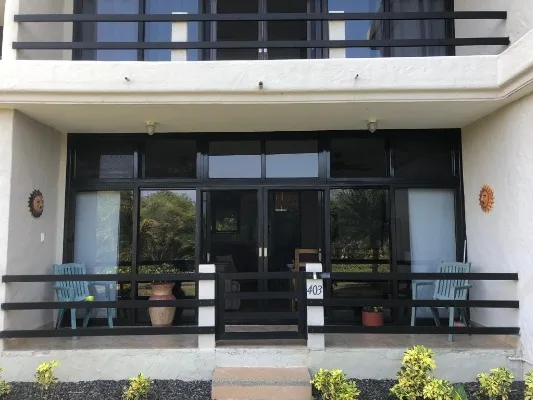Country braces for national strike as government warns Conaie against road blockages and violence; Highways blocked north and south of Cuenca
The Confederation of Indigenous Nationalities (Conaie) said it would begin “shutting down the country” Monday morning in protest of government policies despite official warnings that blocking highways and disrupting services is illegal. In addition to Conaie and a number of local indigenous organizations, the strike is being joined by the Ecuador Federation of Banana Producers of Ecuador and the National Union of Educators.

Protesters have set up roadblocks across the country. This one near Latacunga went up shortly after midnight.
As of 7 a.m. Monday morning, national transportation officials said that protesters had erected roadblocks in dozens of locations around the country and said they expected more to be set up during the morning. In the Cuenca area, the Pan American South highway to Loja was blocked in at least three locations while several roadblocks have been erected to the north, in Cañar Province. Violence was reported at one roadblock in Cotopaxi Province as police moved in with heavy equipment to restore traffic.
On Saturday, Ecuador Interior Minister Patricio Carrillo warned strike leaders against transportation blockages and the disruption of delivery of basic products and services. “We remind protesters that violence, repression and violation of human rights, including the right of free movement, is against the law and the government intends to enforce the law.”
Among its demands, Conaie insists that the government roll back the price of regular gasoline from $2.10 and 2.55 a gallon to $1.50, that it guarantee price supports for agricultural products, that all mining activities be prohibited, that public hospitals be fully restocked with medicine and other and other essential supplies, that privatization of public institutions and services be stopped, and that it take measures to control price inflation of basic products.
Conaie President Leonidas Iza said the country should expect “another October 2019” and said the strike would continue until all demands are met. “We are open to dialog but only after the government complies with our conditions,” he said. “This is not a one-day event. The disruptions will continue until we get satisfaction. The indigenous community and the poor people of Ecuador are in permanent opposition to the government.”
Sunday night, owners of the country’s long-distance bus companies said service would continue as normal but warned customers of possible disruptions. In Cuenca, the Chamber of Transportation said it expects its municipal bus service to operate normally. The Ministry of Education also issued a notice that public schools classes would continue as normal.
Three of Cuenca’s six universities, the University of Cuenca, the University of Azuay and Catholic University, announced Monday morning that classes would be held online during the strike. Some student leaders criticized the decision on social media, claiming it is intended to stop protest marches from forming on campus.
The mayors of Quito and Cuenca, cities that suffered property damage during the October 2019 strike, say there will be no repeat of that in 2022. “We are better prepared this time to deal with violent actors,” said Cuenca Mayor Pedro Palacios. “We don’t expect it will be necessary but we will deploy preventive measures if the situation dictates.”
Advisor to President Guillermo Lasso Diego Ordóñez said Sunday that the president recognizes the right to protest but will not allow damage to infrastructure, private property or restrictions on the transit of food and other essential products. “He will not permit criminal elements to cause the damage we witnessed in 2019. The country’s law enforcement agencies and the military are prepared to prevent this.”
He added: “It is strange that in the midst of our national campaign against crime, Conaie seeks to disrupt the country once again and claims that violence might be part of its protest.”
Quito history professor Rodrigo Jordán defended the strike, saying the government does not understand the suffering endured by many Ecuadorians. “There is a disconnect between officials in Quito and the indigenous people and campesinos. This protest is about the failure of the government to provide basic services, such as health care, education and employment.”
Jordán said that most poor Ecuadorians do not support the use violence in protests. “This strike will need to be different from 2019 if it is to be successful. Last time, it was the poor people who suffered the most from the disruption of services and the closure of roads.”
















